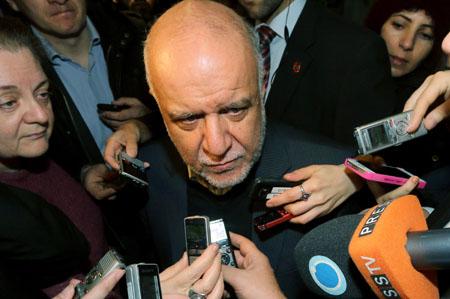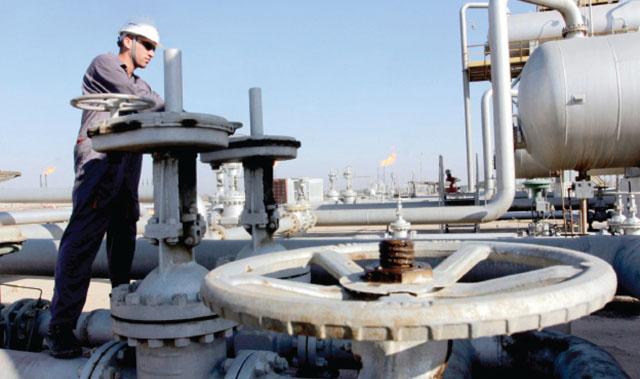You are here
OPEC heading for no output cut despite oil price plunge
By Reuters - Nov 26,2014 - Last updated at Nov 26,2014

VIENNA — Organisation of Petroleum Exporting Countries (OPEC) Gulf oil producers will not propose an output cut on Thursday, reducing the likelihood of joint action by OPEC to prop up prices that have sunk by a third since June and raising the prospect of a global oil price war.
"The GCC reached a consensus," Saudi Arabian Oil Minister Ali Al Naimi told reporters, referring to the Gulf Cooperation Council which includes Saudi Arabia, Kuwait, Qatar and the United Arab Emirates (UAE). "We are very confident that OPEC will have a unified position."
"The power of convincing will prevail tomorrow... I am confident that OPEC is capable of taking a very unified position," Naimi said.
A Gulf OPEC delegate told Reuters the GCC had reached a consensus not to cut oil output. Three OPEC delegates separately told Reuters they believed OPEC was unlikely to cut output when the 12-member organisation meets on Thursday.
The OPEC meeting will be one of its most crucial in recent years, with oil having tumbled to below $78 a barrel due to the US shale boom and slower economic growth in China and Europe.
Cutting output unilaterally would effectively mean for OPEC, which accounts for a third of global oil output, a further loss of market share to North American shale oil producers.
If OPEC decided against cutting and rolled over existing output levels on Thursday, that would effectively mean a price war that the Saudis and other Gulf producers could withstand due to their large foreign-exchange reserves. Other members, such as Venezuela or Iran, would find it much more difficult.
Brent crude was trading down 73 cents at $77.60 a barrel at 1919 GMT.
Naimi said earlier on Wednesday he expected the oil market "to stabilise itself eventually", after talks with non-OPEC member Russia on Tuesday yielded no pledge from Moscow to tackle a global oil glut jointly.
The UAE sided with Naimi, saying oil prices would soon stabilise, while ramping up pressure on non-OPEC nations.
"This is not a crisis that requires us to panic... we have seen [prices] way lower," UAE Oil Minister Suhail Bin Mohammed Al Mazroui told Reuters. "The oversupply came from the evolution of the unconventional oil production... I think everyone needs to play a role in balancing the market, not OPEC unilaterally."
Iranian Oil Minister Bijan Zangeneh said some OPEC members, although not Iran, were now gearing up for a battle over market share.
"Some OPEC members believe that this is the time where we need to defend market share ... All the experts in the market believe we have oversupply in the market and next year we will have more oversupply," he added.
The group could opt to roll over output levels but stress the importance of better compliance, while also agreeing to hold an extraordinary meeting if prices keep falling, several OPEC watchers have suggested.
Price war
Among OPEC members, Venezuela and Iraq have called for output cuts. OPEC's traditional price hawk Iran said on Wednesday its views were now close to those of Saudi Arabia.
Zangeneh said there was unity inside OPEC to "monitor the market carefully" but made no mention of a cut.
"The onslaught of North American shale oil has drastically undermined OPEC's position and reduced its market share," said Gary Ross, chief executive of PIRA Energy Group.
Russia, which produces 10.5 million barrels per day (bpd) or 11 per cent of global oil, came to Tuesday's meeting amid hints it might agree to cut output as it suffers from oil's price fall and Western sanctions over Moscow's actions in Ukraine.
But as that meeting with Naimi and officials from Venezuela and non-OPEC member Mexico ended, Russia's most influential oil official, state firm Rosneft's head Igor Sechin, emerged with a surprise message — Russia will not reduce output even if oil falls to $60 per barrel.
Sechin said he expected low oil prices to do more damage to producing nations with higher costs, in a clear reference to the US shale boom. On Wednesday, Russian Energy Minister Alexander Novak said he expected the country's output to be flat next year.
Many at OPEC were surprised by Sechin's suggestion that Russia — in desperate need of oil prices above $100 per barrel to balance its budget — was ready for a price war.
"Gulf states are less bothered about a price drop compared to other OPEC members," an OPEC source close to Gulf thinking said.
OPEC publications have shown that global supply will exceed demand by more than 1 million bpd in the first half of next year.
While the statistics speak in favour of a cut, the buildup to the OPEC meeting has seen one of the most heated debates in years about the next policy step for the group.
"The idea of unleashing a price war against US shale oil seems strange to me. I doubt you can win this battle as most US oil producers are hedging a lot of their output," said a top oil executive visiting Vienna for talks with OPEC ministers.
Related Articles
Saudi Arabia's oil minister said on Wednesday he expected oil prices, which hit a near six-year low in January, to stabilise, signalling cautious optimistism about the market outlook.
Impromptu talks between Saudi Arabia, fellow Organisation of Petroleum Exporting Countries (OPEC) member Venezuela and oil powers Russia and Mexico yielded no agreement on Tuesday on how to address a growing oil glut, ending without any plan to cut output despite a collapse in prices.
VIENNA — Members of the Organisation of Petroleum Exporting Countries (OPEC) failed to agree an oil production ceiling on Friday at a meetin













